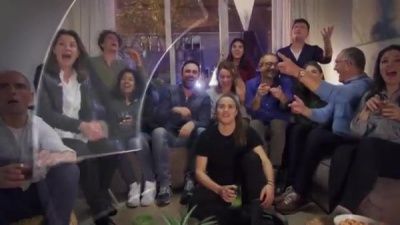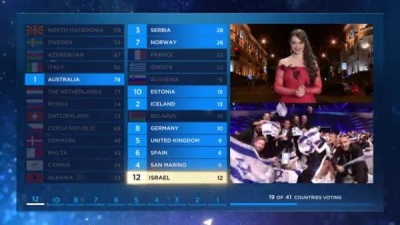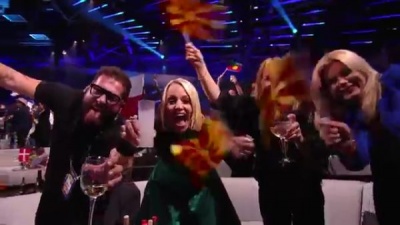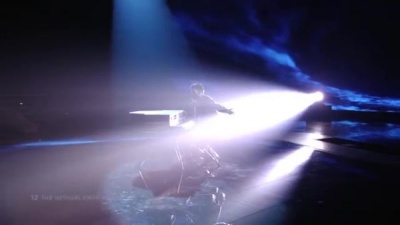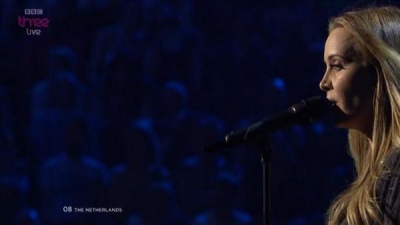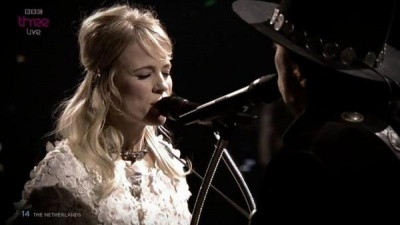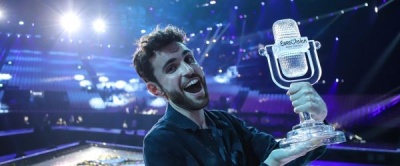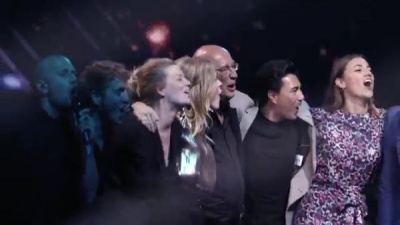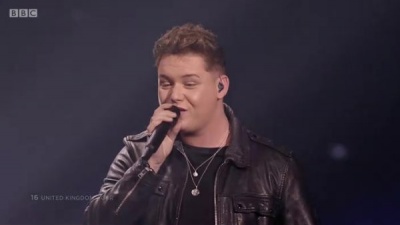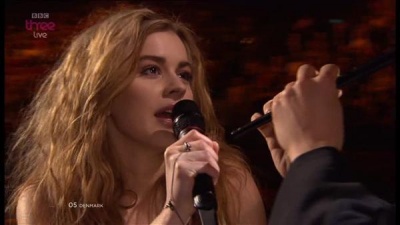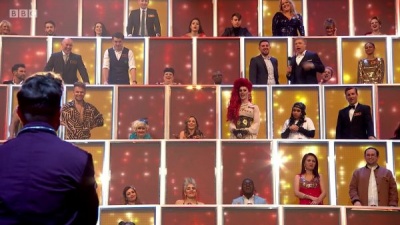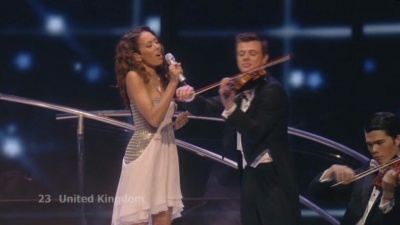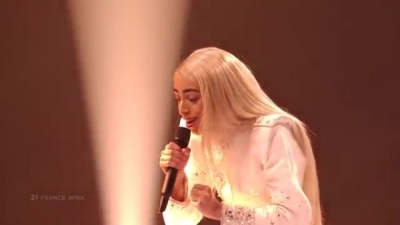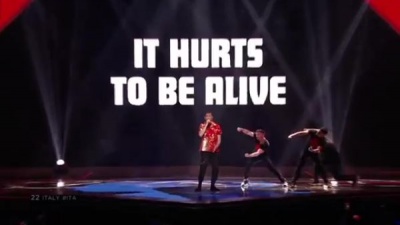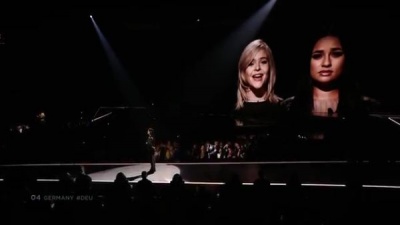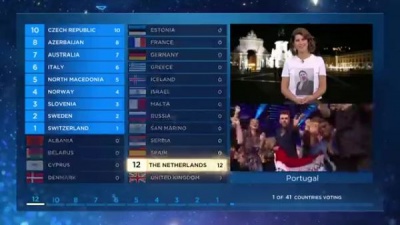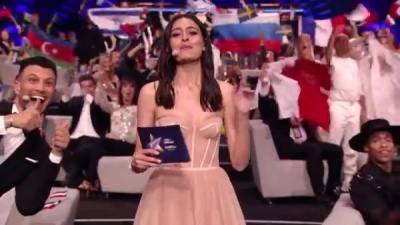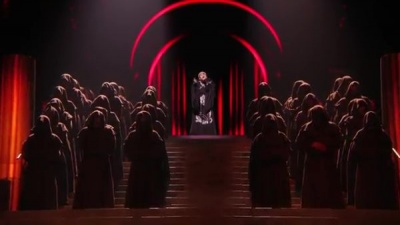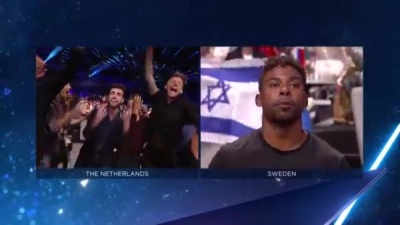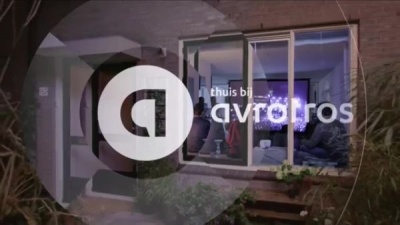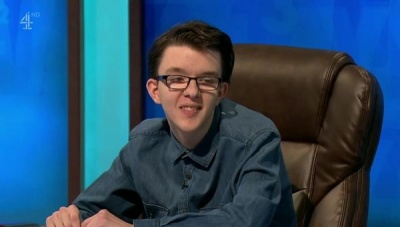Weaver's Week 2019-05-26
Last week | Weaver's Week Index | Next week
By tradition, you might expect a review of last Saturday's show, a deep dive into the voting numbers, and more than a little criticism. We can only promise one of these things.
Eurovision Song Contest
KAN for EBU, including BBC1, RTÉ Radio 2, NOS Radio 2, 18-19 May
First, our congratulations to the BBC. They won this year's Eurovision Song Contest, picking up just 13 faults from the various panels. What, you mean we've sorted the spreadsheet in the wrong order? Give us a job in the EBU!
The jury appointed by BTRC (shown on screen as "Belarus") was dismissed after Tuesday's semi-final, for revealing its vote too early. In its stead, the EBU fabricated a result from the juries of similar broadcasters – GBP "Georgia", RTR "Russia", Íctimai "Azerbaijan", and AMPTV "Armenia". When it came to present these fictionalised results, the EBU sorted the results into reverse order, giving the most lowly-ranked entry 12 points, and awarding nothing to the favoured entries.
In a way, this is fair, as almost all the points went to no-hopers. It wasn't going to alter the results from genuine juries or from actual phone votes. But it's not accurate, and it turned out not to be what the EBU intended to do. They had wanted to give extra points to the leaders, and re-issued the results on Wednesday evening.
By far the biggest loser is "Proud". The entry from MKRTV "North Macedonia" was the favourite of the other juries, but was denied its moments in the spotlight by the EBU's error. What is Skopje like at this time of year?
Eurovision's a losing game
It's a long road to Amsterdam, or Enschede, or Rotterdam, or anywhere they're holding next year's contest. And it didn't begin in Tel Aviv. We start the tale with a report from Dusseldorf contest, eight long years ago.
"Now, there's a strong rumour going around that NOS have had to be dragged here. Apparently, they're cheesed off with the rubbish results in recent years, and thought about pulling out."
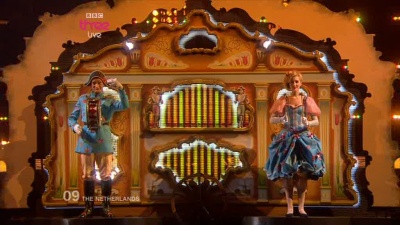 "All the subtlety and nuance of a sledgehammer", as we said in 2010.
"All the subtlety and nuance of a sledgehammer", as we said in 2010.
The public broadcaster had been in the Eurovision doldrums. Since 2005, they'd never once qualified from the semi-finals. There was a close call in 2005, and they were best of the rest in 2008, but Saturday night had proven beyond them. Worse, no entry since 2005 had ever looked like qualifying. 2010's "Ik ben verliefd (sha-la-lie)" felt like a 1970s throwback, and it had only been selected after the national final ended with one judge refusing to vote for either song.
For 2011, TROS organised an internal selection. Pop group 3JS had had a run of hits over the previous years, and leaped at the chance to promote themselves on the international stage. Their song, "Je vecht nooit alleen" was the public's pick. It did nothing at the contest, finishing last in its semi-final. The only way is up, surely. "You and me" was the public's choice for 2012, and didn't qualify for Saturday.
The breakthrough came in 2013, "Birds" flew through to the Saturday show. A dark and brooding and memorable number, it was staged in the round with sensitive shots of the experienced singer Anouk. She'd only agreed to take part if she didn't have to do a national final, and could pick her best song. The pattern was set, and it brought success.
Two experienced hands worked together for 2014's "Calm after the storm", Ilse DeLange and Waylon's number brought country music to the contest, with a memorable staging of the white lines down the middle of a road. The song, credited to The Common Linnets, was one of the best of the decade at Senior Eurovision, and justified its second place overall.
Success at the Eurovision comes in waves, there are up years and there are down years. Trintje Oosterhuis had been recommended by Anouk, but her performance of "Walk along" never gelled, she was distracted by finding out she was pregnant, and the entry missed Saturday by some distance. "Slow down" was the 2016 entry, when Douwe Bob performed a slow number with tinges of country. It qualified easily, and finished in 11th place.
And the pattern was set: "Lights and shadows" from O'G3ne qualified easily and finished 11th in 2017, "Outlaw in 'em" from Waylon qualified easily and finished 18th last year. O'G3ne were graduates of the Junior Eurovision Song Contest, and had later met Ilse DeLange on The Voice of Holland of Holland; Waylon was one part of The Common Linnets.
This year, The Voice of Holland of Holland again featured the mentoring skills of Ilse DeLange. She saw something in Duncan Laurence, introduced him to people who co-wrote the meaningful ballad "Arcade". It won.
AVROTROS drinks from its well of success every year. From seven years, there have been six qualifiers, five top half finishes, and two medallists. The key to this is Ilse DeLange, an exceptional talent-spotter and mentor. She's prepared to put her professional reputation on the line every year, and is rewarded with a good performance every year. Kudos also to Anouk, who took what appeared to be a poisoned chalice six years ago, and gave credible acts permission to perform again.
And there is a pattern to the entries: AVROTROS haven't put forward a fast song in many years, they've concentrated on introspective, brooding numbers. Does this help secure victory? Not directly, but it does help establish an idea in the mind of the committed viewer. "Ah, here comes The Netherlands, expect something dark and meaningful."
Most importantly, the broadcaster has built a stable platform. They've put forward good song after good song, and – by and large – each has secured the results they deserve.
A small café in Hartlepool
From the top, we go down to the bottom of the scoreboard. "Bigger than us", performed by Michael Rice, the entry of the BBC ("United Kingdom", as shown on screen). A token set of points from the juries, a few televotes, and that's all. Twenty-sixth amongst twenty-six.
Something had to finish last, and it's a shame that "Bigger than us" finished last of all. It's a serviceable song in the right throat. Michael Rice is a brilliant singer, he brought out the emotion in the song.
But two things conspired against him. First, the draw. There were a lot of emotive songs from young male singers, and Michael was eclipsed by a number of other vocalists. He was the first solo male after Duncan Lawrence, and followed directly after the televote winner "Spirit in the sky". This happens, and it's unfortunate to get memory-holed, but it's not something the BBC can control.
The second problem is something the BBC could and should have fixed. The first verse is too low for Michael, he growls for much of it. The song needed to be raised up, tweaked to suit the singer better. Juries spotted this, and had an excuse to mark Michael down. Viewers noticed this, and were put off – the song became a break to get the next bottle out of the fridge, or head to the bathroom. And in a year when there are so many great songs, being merely good isn't enough.
Let us be generous, and put the past in the past. What needs to change? What can the BBC learn from AVROTROS? Or what can they learn from Danmarks Radio, which went through a similar rebuilding process a few years earlier?
First, the talent-spotting system isn't working. The songs themselves are selected through industry body BASCA, emerge from songwriting camps, or are sent in from non-professional writers. The best songs are filtered through an international jury and the fans of OGAE. The singers are picked by record industry experts, with Greig Watts acting as the music consultant.
We're seeing some flaws in both parts of this process. We'll start with the singers, who tend to be young and eager and inexperienced. There's no tradition of song competitions in this culture, but we do have singing competitions like The Voice and The X Factor and Michael Rice's show All Together Now. Except these aren't so much technical singing competitions as contests to extract an emotional response from the audience. Eurovision demands emotion, but it also demands technical excellence, and Michael's song didn't let him show his best voice.
Like the AVROTROS entries, those from the BBC fit into a format. Where the Dutch have cornered the market in brooding introspection, the Brits have a reputation for being safe, tepid, dull. Anything with a little character is weeded out before it reaches the public. It seems that the BBC is offering songs it thinks will do well at Eurovision 1991, and hasn't noticed that the competition has changed utterly.
It wasn't always this way. The BBC had a run of success in the late 90s, when they outsourced selection to a maverick independent producer – who promptly got himself jailed for sex crimes, which would explain the reluctance to employ a charismatic outsider. More recently, the commissioned work from Andrew Lloyd Webber and Dianne Warren in 2009 did very well, far better than anything before or since. Maybe it's time to find another outside source, more in touch with Radio 2 than the insular bubbles.
The BBC's budget probably doesn't run to having Ed Sheeran, Adele, or Amy MacDonald sing. It might well stretch to have them write a song, and mentor the performer, and get paid in primetime exposure. Alternatively, the BBC might represent all the culture in its territory, and invite something not in English.
"Perta", S4C's entry for Junior Eurovision last year, was a bit twee, but would have been a breath of fresh air in the BBC's selection show. We wonder about the unique cultural ideas of the BBC's area, is there a jigs 'n' reels band able to bring back the Scottish/Irish sound? The song can be fun and playful, it can be something soft and earnest. but it's got to stand out as a peak of excellence, and it's got to be staged well. Nothing the BBC has sent lately has met both these points.
Whatever the BBC does, it needs to have ambition. We would like to think that the Beeb is doing everything it can to bring about the result its audience desires: not necessarily a win, but to be there or thereabouts almost every year. The Dutch and Danish broadcasters have shown the way: dare the BBC learn from other broadcasters' experiences, or is Auntie guilty of British exceptionalism?
"Eurovision is completely irrelevant to modern pop." "Deep and intense male balladry is such a big deal right now"
Part of the problem in the English-speaking pop world is how the pop establishment can hold two contradictory positions at the same time. If the Eurovision Song Contest is completely different from pop of the moment, how come Duncan Laurence sounds like the best bits of Lewis Capaldi and Sam Smith? Two really hot stars of the moment, combining to capture the moment – and capture the public's heart.
We've looked at some more of Europe's biggest hit singles of the moment, and see many of them reflected in the Eurovision Song Contest entries. Avicii's posthumous hits? See "Storm", Victor Crone has the same beats and a love of CGI. The phenomenon of billie eilish? That'll be "Sebi", the slightly creepy hipster couple.
Pop bops in the vein of Mabel and Bieber-Sheeran? Yeah, we've got "Chameleon" and "Like it", achingly of-the-moment songs that are going to age terribly. Televote winner "Spirit in the sky" is as fun and as bizarre as "Con calma", a mash-up between Daddy Yankee and a mid-90s hit from Snow.
And we could continue – Bilal brought queer and body-positive messages to the stage, Mahmood contributed a fusion of Moroccan and Italian beats, and both Hatari and Katerine Duska owe some debt to the stage presence of Lady Gaga.
"Ah, but Eurovision never discovers any stars," retort the pop establishment. Really? Ask Loïc Nottet, discovered in this contest four years ago and still with a large bank of fans. Ask Lena, the winner eight years back and still a star full of charm and hard work.
Ask the many, many singers from the former Soviet republics who have stepped up at the Eurovision contests – Alyosha, Dima Bilan, the Tolmachevy Sisters. Why do the Eastern bloc do so well? Two reasons, the smaller of which is that they do have a culture of song contests, and know what songs work well.
The bigger reason is that broadcasters will send their established acts, people who know how to work a crowd and what they want to achieve. Maruv, who should have been this year's entry from NTU "Ukraine", already had a massive string of airplay hits, and "Siren song" has gone on to be a huge hit both there and in Russia.
So, yes. We contend that the Eurovision Song Contest has a lot to say about modern pop music. That it has little to say about modern pop music in the European anglosphere is a reflection on the anglosphere's taste makers.
What we can say about the scores
Because of the questions about the jury attributed to Belarus, we've had to toss out quite a chunk of work on the scores. We might revisit this topic later in the summer.
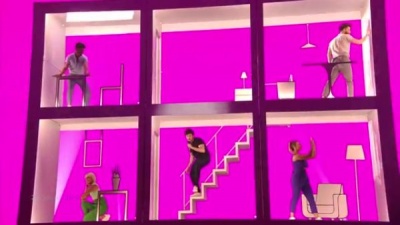 While we're waiting, TVE "Spain" sent a remake of Finders Keepers (2).
While we're waiting, TVE "Spain" sent a remake of Finders Keepers (2).
Instead, a piece of research on the televote. One of the leading streaming companies, Spotify, publishes a "viral" chart, showing the biggest gainers and "most impactful hits" using an opaque measure. Does this correlate with the public vote in the Eurovision Song Contest?
It does, but only loosely. The winners in the televote tend to be placed highly in the viral streaming chart; the less successful tend to be placed lower down. It's not a particularly good match, and the streaming market is biased towards contemporary pop (for the "United Kingdom" vote, "Chameleon" rises from 14th on the televote to 5th streaming, "Friend of a friend" 16th to 3rd) and against spectacular staging ("Zero gravity" was 2nd on televote, 16th streaming).
Aggregating all of these results across Eurovision territories, we see a small positive correlation, one that might not be distinguishable from pure chance. To be honest, we can't use these "viral" charts to draw conclusions about the semi-final televote – not only is the correlation weak, but there's such a delay that charts covering Thursday's semi-final came out after the Saturday final.
On the show itself
As we said, there were 26 songs of quality in the competition. The main interval act was an entertaining run through the contest's recent history, asking one act to perform another's successful song. And we particularly enjoyed the bit in the middle, where Stephen Mulhern was on the streets of Leeds, a toy dog in one hand, two trees in another, and going "wuff wuff" at the tree marked with a cross. What, you didn't see that on In For a Penny because you watched the performance by A Bad Madonna Tribute Act? Unbelievable.
Sound was spot on, and the visuals were a cut above – the organisers discouraged fans from taking flags into the arena, and that helped ensure the performers got the shots and zooms they wanted. This is a television show, and the camera line must come first. All of the presenters sounded assured, Assi Azar was particularly fun to watch.
For the first time, the Eurovision Song Contest ran past 1am CET. Where can they trim off some time? Oddly, not during the voting sequence: every year, it's one hour from when we see Jon Ola Sand claim the jury sheets are all in the right order until we see his Eurovision vignette, and this year was no exception.
The time was lost in the interval. It's grown like creeping ragwort, expanded to fill the space available. Twenty minutes during the early televote years, half-an-hour a decade ago, now fully 64 minutes of recaps, nostalgia, recaps, calls to vote, bad jokes, and recaps.
And a nul points-worthy performance by Madonna. The sixty-year-old mother-of-three gave a wittery interview with one of the hosts, during which she said nothing of importance. Later, she performed a bad karaoke version of her classic hit "Like a prayer", and her new single "I'm still relevant, honest." We could have watched an episode of Wedding Day Winners during the voting interval – and it would have been almost as entertaining.
And the pauses during the voting went beyond "tension" and into the realms of "Get on with it! Conseguirlo! Depechez-toi! Ga verder met het! Avanti con esso! Diese Zunehmendeverzögerung ist höchst inakzeptabel!"
We could have run a Mastermind specialist round in the gap while they were faffing around with the final public vote, ending with John Lundvik's face falling as he realised he had lost. Worse, on Thursday we saw Michaela in quite some distress due to the prolonged pauses: there's emotion, and there's distraught, and the producers went way too far. Yes, someone has to lose; no, we don't need to see their suffering prolonged by the producers.
Frankly, we'd rather see them revert to the prior method of running up the televote pack. Or go to a new method, announcing the scores from the bottom place up, so we finish with "the runner-up is... the winner is". We saw "Spirit in the sky" take a massive load of points, but we didn't see that it was the televote winner. Naming the Sunday King of the Bungalow is difficult, and it's something lost in the new format.
In the end, there was a compromise winner. "Arcade" didn't win the televote, didn't win the jury, but did best when these two elements were combined. It's the song played under the closing credits of a seven-year plan.
Mastermind Update
Semi-final 4
Lucy Glass took Queen Victoria. 64 years on the throne, apparently; hadn't they invented the doctor at this date? It's our Hidden Transmission Indicator of the Week, the show airs 200 years to the day since Victoria was born. The round starts strongly, but the first stumble seems to throw the contender off, so it's 5 (2 passes).
Keshava Guha has Men's Test Cricket between England and India. It's a rivalry that's been going since it began, apparently; this host really does spout some obvious nonsense. "Wankhede!" is something our contender can shout, it's an answer, en route to 6 (1 pass).
Sanjoy Sen offers Sir Alec Issigonis. A car designer and racer, of the Morris Minor, Austin Maxi, and many more. The contender knows his carburettor from his carrots, and makes 10 (2 passes).
Hamish Cameron gives The Life and Times of Thomas Paine, the great liberal thinker. There's a very long pause before the second response – a pass – but Hamish doesn't let this put him off more than he has to. It's a great recovery to 8 (1 pass).
Carole Stead concludes the specialist round with the Plays of Ibsen. The contender deals with questions briskly, a swift answer, right or wrong. That takes her to 10 points.
Lucy Glass knows who was the Grinch that Stole Christmas, and ends on 13 (3). Keshava Guha gets the tribute to Stephen Hawking on the way to 11 (2).
Hamish Cameron kicks off with a 1984 pair: Torvill and Dean, and the £1 note. He knows everything from that to the Holy Roman Emperor, and closes on 21 (1). Follow that!
Sanjoy Sen starts his round strongly, literally knowing his onions and the element that makes us cry. But there's a sag in the middle, some errors and passes, and the time just gets away from him. The final: 20 (4).
Carole Stead has a go at every question, but it's clear she's making more errors than she can afford. The round comes together at the end, but only to 18 points.
So Hamish Cameron, the retired IT consultant, takes the next golden ticket to the final.
This Week and Next
All Hail King Elliot! Elliot Mellor has been ripping through the Countdown studio like there's no tomorrow. Game 1: a record score by a debutant, 131 points. Game 2: a record score of 152 points.
One hundred and fifty two points! That just about proves what we said three months ago, Zarte's 150 was going to be beaten. We didn't expect it to be beaten in the current series. This week, Elliot has been one point off a maximum game once, two points off a maximum game twice, and has a worst score 9 off the maximum.
On Monday, Elliot goes for his octochampdom. He needs to win with a score of 72 to become the first and only member of The 1000 Club, contenders who have reached a millennium in their heat games. We think this is likely to happen.
The Crystal Maze is coming back, and with a new zone. Mediaeval is consigned to the history books, replaced by a new "Eastern" zone. It'll feature all things oriental, like Lucky Cat, a Shanghai Surprise, Mr. Chan's Amazing Tangram Puzzle, and Can You Distinguish Bethnal Green from Bow.
BARB ratings in the week to 12 May.
- Nothing stands in the way of Got Talent (ITV, Sat, 9.4m). The biggest non-game show is Coronation Street (ITV, Wed, 7m).
- It's a long way to the next pair: The Chase (ITV, Thu, 3.65m) and Pointless (BBC1, Mon, 3.4m). Xander and Richard always benefit from not being head-to-head against the opposition.
- A new peak for Ninja Warrior (ITV, Sat, 3.35m), and it's ahead of In for a Penny (3.3m). Brightest Family also broke 3m (ITV, Wed).
- Bake Off The Professionals was C4's biggest game (Tue, 2.05m), Great Local Menu led for BBC2 (Fri, 1.85m).
- A new series of Taskmaster propelled it to 1.05m viewers (Dave, Wed), that's ahead of Eggheads (BBC2, Thu, 1.02m). Celebrity Juice (Thu, 795,000) and Stephen Mulhern's Got More Talent (Sat, 745,000) were big on ITV2.
How talented are you? It's the Got Talent live semi-finals (ITV and VM1, weeknights), and a new series for the highbrow Master of Photography (Artsworld, Tue). How much do you know about cooking? Can you Beat the Chef (C4, weekdays)?
Next Saturday sees the final of Ninja Warrior (ITV), and a 1990s Pointless Celebrities (BBC1).
Photo credits: KAN/EBU, NRK/EBU, SVT/EBU, DR/EBU, Andreas Putting/EBU, Remarkable Television (part of EndemolShine), RTR/EBU, AVROTROS, YTV.
To have Weaver's Week emailed to you on publication day, receive our exclusive TV roundup of the game shows in the week ahead, and chat to other ukgameshows.com readers, sign up to our Yahoo! Group.

